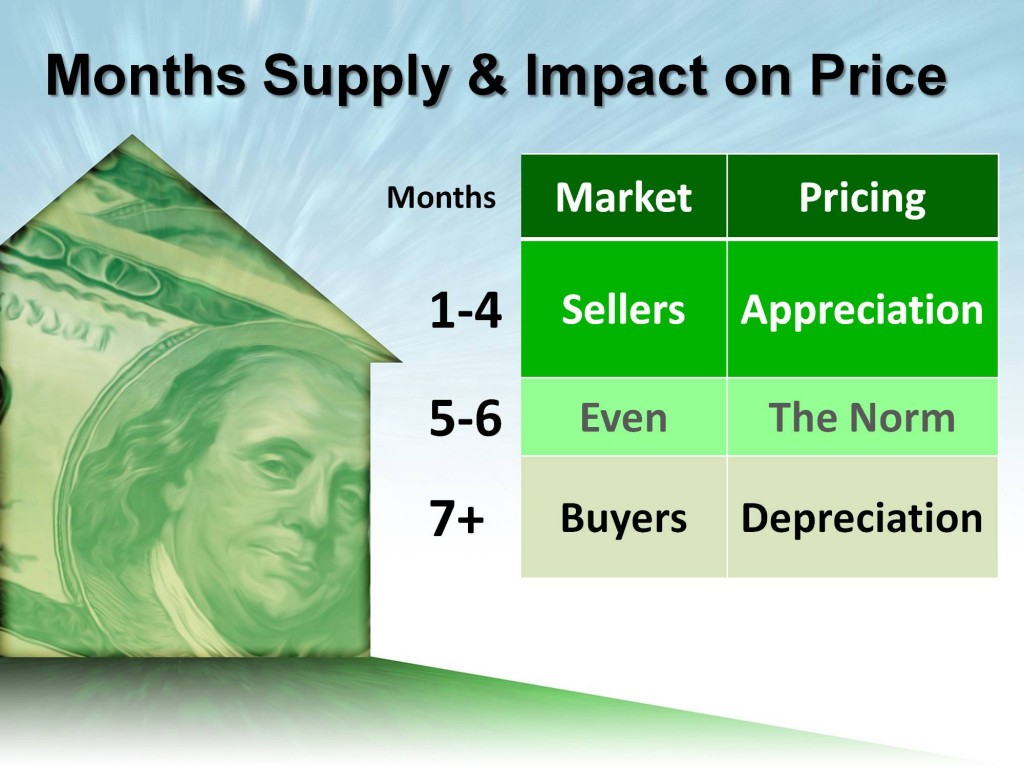by The KCM Crew on March 4, 2013 ·
For some time now, we have attempted to shed light on the fact that pricing in today’s real estate market, as it is in the markets for every other saleable item, will be determined by the concept of ‘supply and demand’.
According to dictionary.com:
“The relationship between supply and demand determines the price of a commodity. This relationship is thought to be the driving force in a free market.”
In real estate, supply and demand is represented as the current month’s supply of homes for sale (the number of homes for sale divided by the number of homes sold in the previous month).
While there is no steadfast rule that will apply to pricing in every category of housing, here is a great guideline:
- 1-4 months supply creates a sellers’ market where there are not enough homes to satisfy buyer demand. Appreciation is guaranteed.
- 5-6 months supply creates a balanced market. Historically home values appreciate at a rate a little greater than inflation.
- 7-8 months supply creates a buyers’ market where the number of homes for sale exceeds the demand. Depreciation follows.
What is happening across the country right now?
In most parts of the country, home values are rising. This is for two reasons:
- According to NAR’s latest Existing Homes Sales Report, raw unsold inventory is at the lowest level since December 1999 when there were 1.71 million homes on the market.
- According to this month’s Pending Sales Report from NAR, houses going into contract reached levels last seen in April 2010 which was the month the Home Buyers’ Tax Credit expired.
This has resulted in a 4.2-month supply at the current sales pace which is the lowest housing supply since April 2005 when it was also 4.2 months.
Based on the table above, we can see that the supply/demand ratio is leaning toward a sellers’ market where prices will appreciate. That has created positive movement in housing values in most parts of the country.
When your real estate professional discusses home values, he/she should be prepared to show what the supply/demand ratio for homes similar to yours is in your area.
